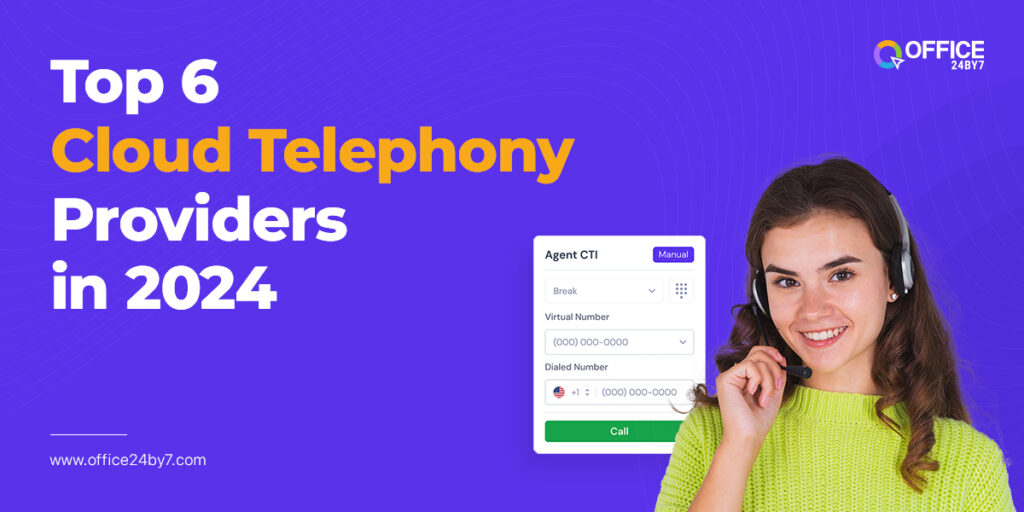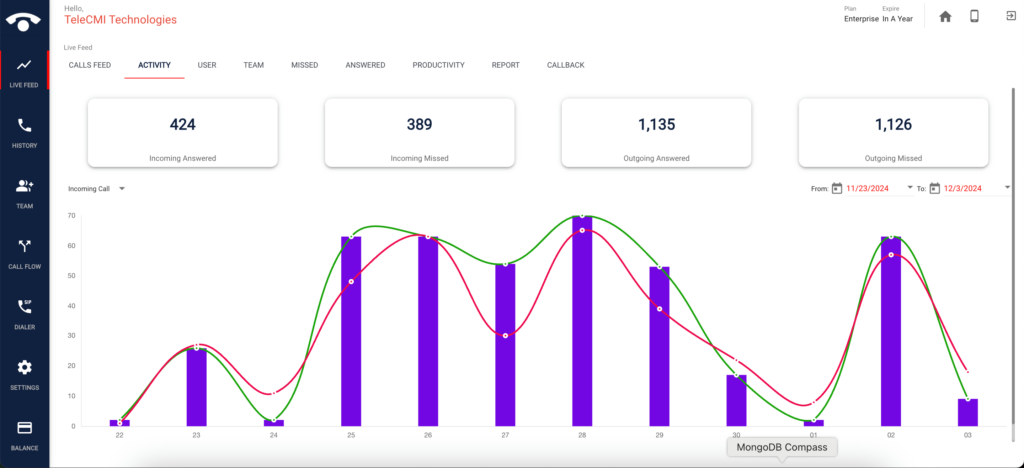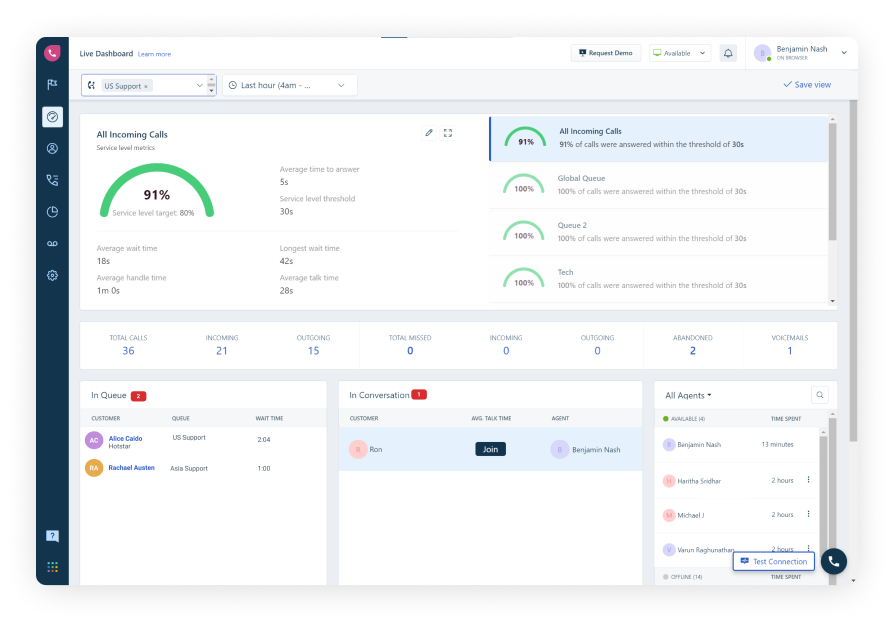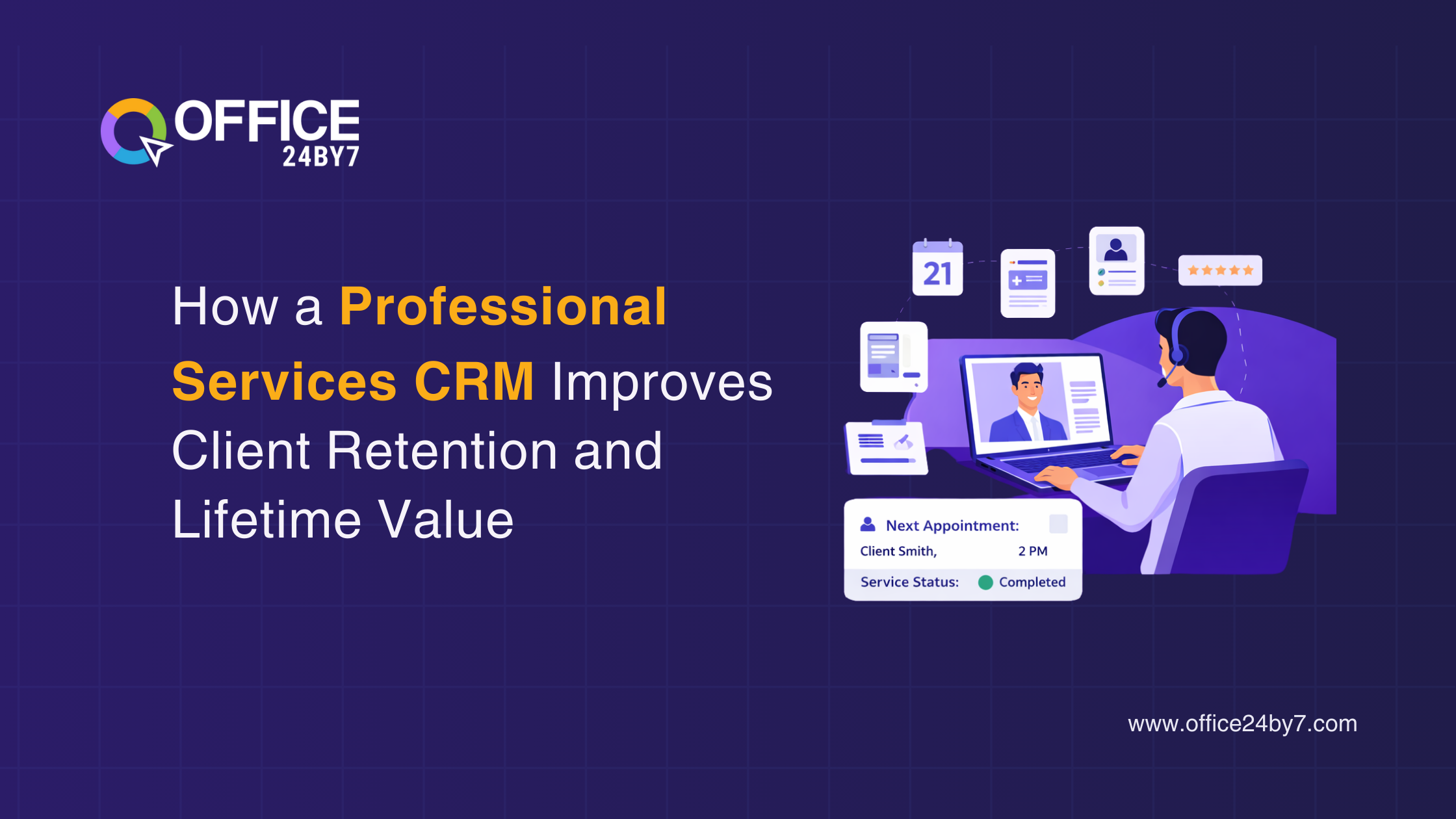
Not sure if this blog on cloud telephony providers contains quality information?
Try our 1-minute short audio summary to decide. 🎧
The cloud telephony market is growing rapidly, with numerous service providers entering the space, making it difficult for businesses to choose the right one. While many providers may seem similar on paper, their practical applications can vary significantly. Selecting the best cloud telephony services depends on a company’s specific needs and constraints.
Not all cloud telephony solutions are suited for every business, and it’s crucial to assess each provider based on unique requirements. While one platform may excel in reliability, another might offer superior integrations or customer support. The key is to match the features of the service with your company’s operational goals and communication needs.
The popularity of the cloud telephony software market is skyrocketing, projected to reach $34.7 billion by 2028. As businesses increasingly move away from traditional PBX systems, cloud telephony software is becoming a vital tool. In 2024, companies should explore the top six cloud telephony providers to capitalize on the benefits of modern communication solutions.
Features of Good Cloud Telephony Providers
Before we dive into the list of top 6 cloud telephony solutions, let’s look at the most important features that any business, in general, would require and should expect their cloud telephony services provider to provide.
Unified Communications as a Service (UCaaS)
Cloud telephony software is a powerful tool that offers far more than just calling capabilities. It supports features like conferencing, file sharing, data segregation, segmentation, and more. This versatility makes it an excellent choice for communication, fostering seamless interoperability and boosting productivity.
Virtual Number Services
A key feature of a cloud telephony services provider is their ability to offer virtual numbers. Virtual numbers enhance communication by ensuring seamless, round-the-clock connectivity between your company and its customers.
Whether or not your company already has virtual numbers, cloud-based virtual numbers are essential for maximizing efficiency and effectiveness. The best cloud telephony providers should offer local, mobile, or toll-free virtual numbers for regional or international use, depending on your needs. If you already have numbers, they should also provide the option to port them to the new platform.
Interactive Voice Response (IVR)
An IVR system is an automated solution that allows customers to navigate a menu of options using DTMF inputs through their phone keypad. Implementing an IVR enables your business to remain accessible 24/7, eliminating the need for a human receptionist to manage incoming calls. Customers can address their queries directly, avoiding long wait times and unnecessary redirections. This not only enhances customer satisfaction but also significantly reduces call abandonment rates for your company.
Dialers
Dialers are essential for any system that prioritizes outbound calling. Preview, Progressive, and Predictive dialers enable agents to efficiently connect with a large list of leads. These tools allow agents to operate directly within their customer database, eliminating the need to switch between different software or systems to make calls and log interaction data. This streamlined process enhances productivity and ensures smoother communication management.
Call Routing and Distribution
Call routing and call distribution are crucial features for managing incoming calls effectively provided by cloud telephony providers.
Call routing ensures that incoming calls are directed to the appropriate department—for instance, customer support inquiries are sent directly to the support team.
Call distribution, on the other hand, comes into play when a call is directed to a department with multiple agents. The call follows a specific pattern or topology until it’s answered. Examples of distribution topologies include round-robin, linear, and ring-all, each ensuring that calls are efficiently handled within the team.
Call Recording, Monitoring, Whispering, Barge-in
There are four key call-related features to look out for in cloud telephony providers that add significant value to any company:
Call Recording allows calls to be recorded for future reference. This helps teams revisit conversations for critical information and improve communication processes.
Call Monitoring enables managers and team leaders to listen in on live calls between agents and customers. This ensures agents are performing well and maintaining high-quality standards during interactions.
Call Whispering lets managers or team leaders quietly communicate with agents during calls without the customer hearing. This feature is ideal for providing real-time guidance and support to agents who may need assistance.
Call Barge-In allows managers to join ongoing calls directly, giving them the ability to take over conversations or offer direct help to both agents and customers.
Communication Automation
A top-tier cloud telephony platform offers robust communication automation capabilities. These customizable workflows streamline processes, freeing agents from repetitive tasks. For instance, after a sales call, automated email sequences can be triggered to send welcome messages or introductory emails tailored to the customer’s interests. This eliminates the need for agents to manually gather email addresses, compose emails, and send them individually to each lead.
CRM Integration
CRM integration enhances cloud telephony software by seamlessly connecting them to your existing or new customer relationship management platform. This integration allows agents to initiate calls directly from the CRM interface, eliminating the need for manual number lookup and dialing on separate devices. Furthermore, great cloud telephony providers give comprehensive reports and analytics, offering valuable insights into agent performance. These metrics help identify areas for improvement and drive future success in customer interactions.
Internal Communications
Effective internal communication is crucial for any business. Teams should be able to collaborate internally with the same ease and efficiency as they communicate with external parties. Features such as note sharing, file exchange, voice calling, and instant messaging are essential tools that can significantly enhance productivity.
Mobile Integration
The ability for integration of cloud telephony services with smartphones is crucial. This offers mobility and remote accessibility, allowing employees to stay connected regardless of their location. Such functionality is particularly valuable for field agents, enabling them to access communication systems and initiate interactions even when away from their desks. This flexibility not only enhances productivity but also ensures seamless customer service.
Integration with Collaboration Tools
Businesses often rely on a diverse array of digital tools, such as Gmail for email campaigns, Outlook for calendar, and Zoom for video conferencing. Effective cloud telephony providers should seamlessly integrate these collaboration platforms, ensuring that no single tool becomes secondary or isolated. This integration allows agents to effortlessly utilize any of these systems without the need to log into separate applications or platforms to initiate or track interactions. By centralizing these tools, businesses can streamline its communication workflows.
Office24by7 provides seamless third-party integration capabilities ensuring that your existing communication channels are not abandoned.
Reports and Analytics
Comprehensive analytics and reporting capabilities are crucial features to prioritize in a cloud telephony software. These tools provide detailed insights into your activities and those of your team members, ensuring all efforts align towards common goals. Such data-driven analysis enables you to identify and address performance gaps effectively.
Office24by7’s cloud telephony software offers robust analytics and reporting tools, allowing you to generate customized reports and access detailed data for thorough team performance analysis. Additionally, you can set up automated daily report emails, delivered at specified times and intervals, keeping you consistently informed of key metrics and trends.

How to Choose From the Best Cloud Telephony Providers
1. Listing Your Requirements
Selecting one of the cloud telephony providers requires a thorough assessment of your organization’s specific needs. The features and tools essential for daily operations can vary significantly across teams and departments. Therefore, it’s crucial to evaluate the interoperability and versatility of potential solutions.
Begin by compiling a comprehensive list of required features, ensuring it encompasses the maximum functionality you might need. This approach allows you to identify the most suitable provider from your curated options. For instance, if your work demands advanced sorting and filtering capabilities, a provider lacking custom filter options may fall short of your requirements.
It’s important that this list of requirements be compiled by the end-users who will interact with the system daily themselves. Their firsthand experience and insights are invaluable in identifying critical features that might otherwise be overlooked.
2. Ease of Use
The usability of a cloud telephony software is paramount to its value as an investment. An ideal solution should be intuitive to navigate and quick to master. If your team requires more than a reasonable period of 3 to 5 days to become proficient with the new system, it could significantly impair productivity and morale.
To ensure a seamless adoption process, it’s crucial that the end-users who will interact with the system daily should have a hands-on experience to assess the system’s user interface and overall user experience, identify potential learning curves or obstacles, determine if the system aligns with their workflow needs, and provide valuable feedback to decision-makers.
3. Customer Support
Even the most feature-rich and competitively priced cloud telephony software can fall short if it lacks adequate post-purchase support. It’s not uncommon to secure an attractive deal, only to find yourself facing delays or insufficient assistance from the provider’s customer support team after implementation.
While technical issues are an inevitable aspect of any software, the true measure of a provider’s quality lies in their ability to promptly address and resolve customer concerns and queries. If user inquiries consistently remain unresolved, it can significantly compromise the system’s usability and value to your organization.
To mitigate this risk, it’s crucial to conduct thorough due diligence on a provider’s reputation for customer support before making a purchase decision. Seek out customer reviews from a variety of sources, including Google, reputable software review platforms like G2 or Software Suggest, and public forums such as Reddit and Quora.
4. Ease of Migration
As an existing company, you likely have an already established communication processes and systems. A smooth migration of these to a new platform is crucial to minimize disruptions.
It’s important to consider the level of support the provider will offer during the migration process.
Will they provide sufficient assistance to ensure a seamless transition? Additionally, the timeline for the migration is a key factor. How long will the process take, and will it cause significant delays in your operations? Finally, it’s essential to assess your team’s ability to operate the new system independently after migration. Will continued support from the provider be necessary, or can your team manage the system without assistance?
5. Budget and Hidden Charges
Budget is another critical factor to consider when choosing a cloud telephony solutions. While there are many low-cost options available, they often come with significant drawbacks that can pose a threat to your business.
Conduct thorough research to understand the typical cost range for cloud telephony services that meet your requirements. This will help you narrow down your options based on your budget constraints. Be prepared to consider options slightly above your initial budget if they offer exceptional value. When evaluating potential providers, don’t overlook hidden costs such as taxes, installation fees, or other charges that might be included.
6. Privacy and Security
Privacy and security of communications and data are important, especially when dealing with customer information. While these factors might seem less urgent initially, they are essential for maintaining trust and protecting your business.
Ensure that your list of cloud telephony providers adheres to the necessary technical and security standards. It’s often worthwhile to invest in a provider with stronger security measures, even if it means a slightly higher cost.

Top 6 Cloud Telephony Providers in India (2024)
#1 Office24by7 Cloud Telephony
G2 Rating: 4.5/5
Features:
Virtual number, Local number, Mobile number, Toll-free number, Call forwarding, Welcome message, Multi-level IVR, Programmable extensions, Voicemail integration, Scheduling of IVR, Audio file upload, Recording through call, Text-To-Speech, Call routing, Sticky agent, In-Queue message, Music-On-Hold (MOH), Automatic Call Distribution (ACD), Call logs, Call whispering,
Call monitoring, Feedback call with IVR, Feedback with short-URL, Bulk SMS campaigns, Bulk email campaigns, Bulk voice campaigns, SMS analytics, Email analytics, Mobile and desktop apps, DND list, Blacklisting and Whitelisting, Phone number extensions, Call dispositions, Call notes, Concurrent calls, Daily email reports, Pilot number, Predictive dialer, Progressive dialer, Preview dialer, Campaigns & Lists, Data import, NDNC registry, Dashboards, Role-based permissions, Reports & Analytics.
Pricing:
Contact Sales
Free Trial:
30 days
#2 TeleCMI

G2 Rating: 4.8/5
Features:
TeleCMI is one of the major cloud telephony providers with the following features: SDK & API, Virtual numbers, Advanced voicemail, Click-To-Call, Call forwarding, IVR, Sticky agent, Call conferencing, Customer caller ID, Call distribution, Call routing, Live monitoring, Call barge-in, Call whispering, Call recording, Dialers, Email schedules, Call reports, and CRM integrations.
Pricing:
Basic: $6.93 /user/month
Premium: $8.91 /user/month
Enterprises: $11.89 /user/month
Free Trial:
10 days
#3 Openphone
G2 Rating: 4.5/5
Features:
Calling (US & Canada), Virtual number, Messaging (US & Canada), International calls and messages (Add-on), AI message responses, Internal threads, Snippets, Shared contacts, Contact notes, Business hours, Voicemail transcripts, Call recording, Auto-reply, Scheduled messages, User groups, Group messaging, Basic call forwarding, Email integration, Web-hooks, User roles and management, Standard customer support.
Pricing:
Starter: $19 /user/month
Business: $33 /user/month
Enterprise: Contact Sales
Free Trial:
7 days
#4 CallHippo
G2 Rating: 4.4/5
Features:
Free 1 phone number, 100 SMS (Text Messages), Calling minutes (US/CAD), Forward-To-Device, Click-To-Dial, AI global connect, Call mute, Business hours, Country blocking, Leaderboard (Gamification), Custom ring time, Clone number / User setting, Manage agent availability, Campaign management, Shared inbox, Voicemail, Smart switch, 2FA, Ring-All-Devices, Web-hook, Website call-back button, Call logs 1 month, Teams, Last-called-by, Audit Logs, User working hours, Basic report analytics, Feedback for calls.
Pricing:
Starter: $18.00 /user/month
Professional: $30.00 /user/month
Ultimate: $42.00 /user/month
Free Trial:
10 days
#5 Vonage
G2 Rating: 4.3/5
Features:
VBC mobile app, VBC desktop app, Unlimited domestic calling, SMS and MMS, Voicemail, Phone number porting, Virtual receptionist, VBC admin portal.
Pricing:
Basic: $13.99 /line/month+taxes+fees
Premium: $20.99 /line/month+taxes+fees
Advanced: $27.99 /line/month+taxes+fees
Free Trial:
Yes
#6 Freshcaller

G2 Rating: 4.1/5
Features:
Virtual numbers, Number porting, 2000 incoming minutes/month free, Basic call queues, Voicemail, Warm/cold transfer, Call recording, Pre-built reports, Parallel calling, Queue transfer, Caller ID, Call notes, Desktop notifications, Custom greetings, Call metrics, Conversation properties, Inbox
Pricing:
Growth: $15 /agent/month
Pro: $39 /agent/month
Enterprise: $69 /agent/month
Free Trial:
14 days
Frequently Asked Questions
What is the use of cloud telephony?
Cloud telephony software is an internet-based communications system. It is often called a Unified Communication as a Service or UCaaS. The term unified communications describes the integration of voice, video, data, and other real-time communication services that cloud telephony services provide. It’s goal is to simplify the business process by offering many different types of communication on one platform.
What is the difference between VoIP and cloud telephony?
While both cloud-based phone systems and business VoIP provide the same phone system functionality and utilize the internet for voice communication, cloud telephony typically involves hosted phone systems. These are managed by third-party cloud providers, offering a range of features such as instant messaging, call analytics, etc.
Why move to cloud telephony?
Cloud telephony solution provides various advantages and benefits over traditional phone systems. People can take calls and answer support queries even when they’re not present in the office. All you need is a device connected to a stable Internet connection in order to make communication possible.
What are the disadvantages of cloud telephony solutions?
One of the main con of using cloud phone systems is their dependency on their provider. If the provider experiences technical, financial, or operational issues, it can impact the availability and reliability of the phone system.
What are the benefits of cloud telephony services?
- Scalability
- Flexibility
- Reliability
- Low maintenance
- Cost effective
- Customer satisfaction
- Integral with existing and new systems
- Highly Secure
How many days of free trial does office24by7 provide?
Office24by7 cloud telephony services are available for 30 days of trial period.
Which is the best of the cloud telephony service providers in India?
Office24by7 is the best cloud telephony service provider in India. You can read more about their services and features in India by clicking here: Top Cloud Telephony Service Provider in India.





